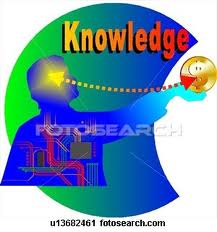In the past, students go to schools get degrees then go to work in industry and they can function for a long time because what they know are still valid but today information technology revolution changes everything. What was valid few years ago may not be valid anymore. For example, programming languages such as COBOL or FORTRAN are the two main languages in every computer systems during 1950 to 1980 but today most computer systems requires different languages such as C, C++ or JAVA. There is nothing wrong with COBOL or FORTRAN but there is no need for those skills anymore because technology has changed. To stay current with the change, people must learn new thing and continue to learn throughout their life. A lifelong learning encompasses learning from childhood to retirement; it includes formal and informal education: Formal education includes structured training that are taught at universities and recognized by formal education system that lead to degrees and certificates. Informal education includes unstructured training, which can take place anywhere, including the home, community, or workplace. It includes on-the-job training, mentoring and apprentice or workplace learning. In order to make lifelong learning effective, we must change our thinking from go to school for a degree or certificate to attending school to acquire knowledge and to mature as individual in the knowledge–based economy.
From the economic theory, overall knowledge and skills can be accumulated as inputs in the production of economic wealth of a country. In addition to measure capital and production, knowledge-based economy will also measure skills and knowledge, ideas and inventions. Because the speed of change in the knowledge economy, every skill will depreciate over time so to compete effectively in this constantly changing environment, every worker must continue to upgrade their skills and government must keep continue education as the top priority. Because change in the knowledge economy is so rapid companies can not rely solely on hiring new graduates as the primary source of new skills and knowledge but must rely on other training institutions to prepare workers for lifelong learning. Because of the rapid changes, educational systems can no longer emphasize academic theories and task-specific skills such as programming languages in information technology training but must focus instead on the total system such as developing decision making and problem-solving skills and teaching students on how to learn on their own (Learning by doing) and with others (Team learning).
I strongly believe that Lifelong learning is crucial in enabling workers to compete in the global economy. A good education can help reduce poverty and brings prosperity; if countries do not promote lifelong learning, the skills and technology gap between them and industrial countries will continue to grow and it will be very difficult to catch up. By improving people’s ability to function as members of their communities, education and training can also increase social cohesion or local ties. We must moving away from sending workers to where the jobs are but creating jobs where people live thereby helping to build human capital, increase local economic growth, and stimulate overall development. In conclusion, I strongly believe that education and training is fundamental to economic development and it is more than ever critical in the knowledge and global economy.
————————————————————
Prof. John Vu, Carnegie Mellon University
————————————————————
Source: SEGVN
From the economic theory, overall knowledge and skills can be accumulated as inputs in the production of economic wealth of a country. In addition to measure capital and production, knowledge-based economy will also measure skills and knowledge, ideas and inventions. Because the speed of change in the knowledge economy, every skill will depreciate over time so to compete effectively in this constantly changing environment, every worker must continue to upgrade their skills and government must keep continue education as the top priority. Because change in the knowledge economy is so rapid companies can not rely solely on hiring new graduates as the primary source of new skills and knowledge but must rely on other training institutions to prepare workers for lifelong learning. Because of the rapid changes, educational systems can no longer emphasize academic theories and task-specific skills such as programming languages in information technology training but must focus instead on the total system such as developing decision making and problem-solving skills and teaching students on how to learn on their own (Learning by doing) and with others (Team learning).
I strongly believe that Lifelong learning is crucial in enabling workers to compete in the global economy. A good education can help reduce poverty and brings prosperity; if countries do not promote lifelong learning, the skills and technology gap between them and industrial countries will continue to grow and it will be very difficult to catch up. By improving people’s ability to function as members of their communities, education and training can also increase social cohesion or local ties. We must moving away from sending workers to where the jobs are but creating jobs where people live thereby helping to build human capital, increase local economic growth, and stimulate overall development. In conclusion, I strongly believe that education and training is fundamental to economic development and it is more than ever critical in the knowledge and global economy.
————————————————————
Prof. John Vu, Carnegie Mellon University
————————————————————
Source: SEGVN

